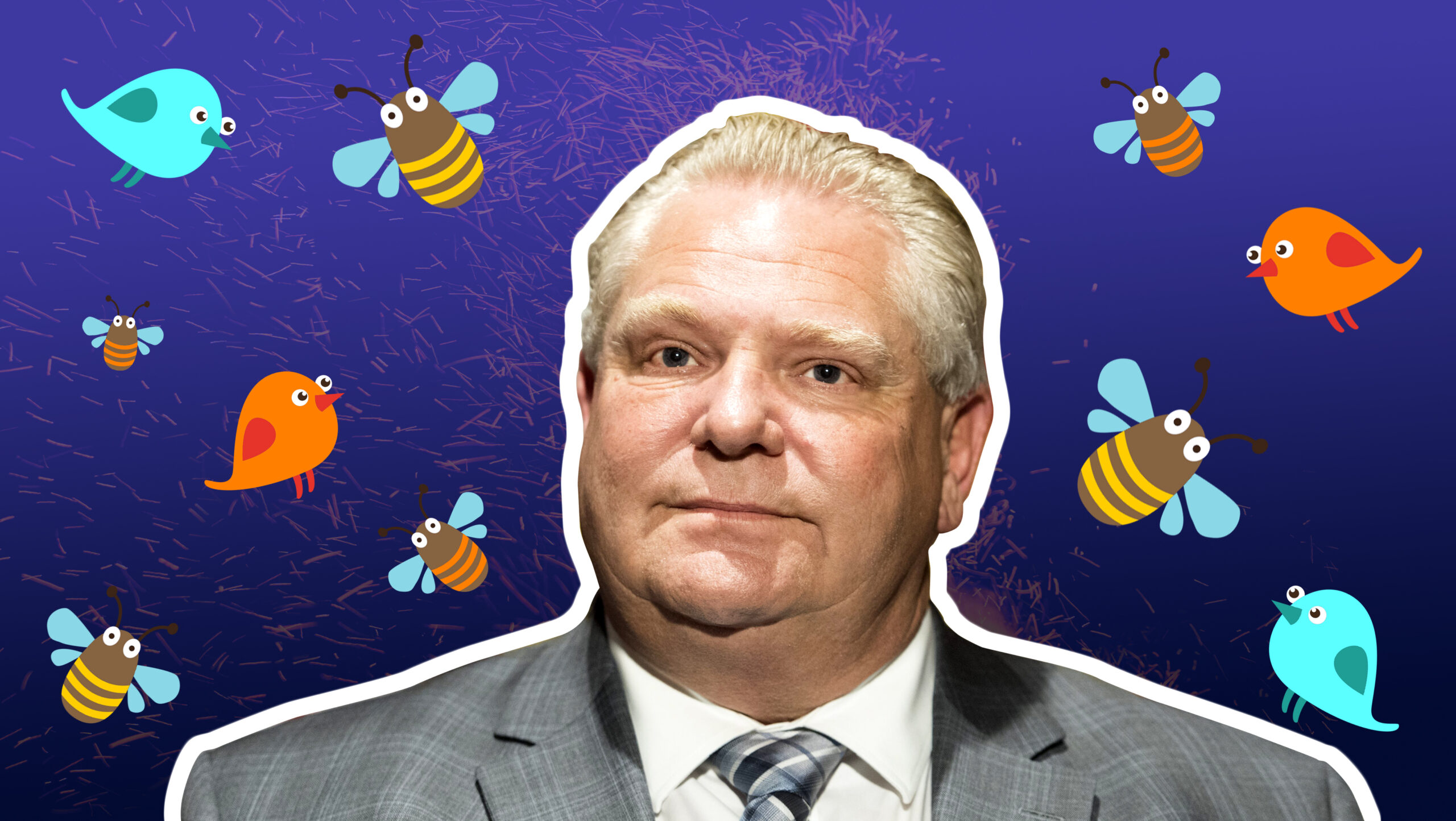After a whirlwind of repeals, debates and changes over Ontario sex education, Doug Ford’s government released a new curriculum on Wednesday, ahead of the 2019 school year. And, as always with sex ed, it’s complicated.
When Ford took power in the summer of 2018, his government repealed the updated 2015 Health and Physical Education curriculum set in place by former premier Kathleen Wynne. That curriculum was the first update to sex education in the province since 1998, and included references to consent, sexual orientation and gender identity, as well issues around healthy relationships and the internet. The repeal caused an uproar among many parents, students and educators, who feared a new curriculum would fail to address the issues the 2015 version explicitly outlined.
Now, the Ford government has reinstated a 2015-lite version of sex ed, announcing it in a release titled “Supporting Students, Respecting Parents.”
Here’s what you need to know about the new curriculum.
Students will still learn about sexual orientation and gender identity . . .
A major update to the 2015 curriculum was the inclusion of discussions about sexual orientation, gender identity, homophobia and transphobia — topics that were absent in the 1998 version.
Despite fears that a Ford government’s take on sex ed would eliminate lessons on LGBTQ2 identities, the new curriculum once again includes discussions of sexual orientation and gender identity. Students will learn what a sexual orientation is in Grade 5 (previously taught in Grade 6), while gender identity will be taught in the second half of Grade 8 (previously taught in Grade 6).
. . . but it’s not the government’s focus.
Absent in the government’s press release about the new curriculum is any mention of LGBTQ2 issues or identities. Instead, there’s a directed focus on issues such as vaping and concussions:
“The province is introducing an enhanced and inclusive Health and Physical Education curriculum for Grades 1-8 that relates to the everyday experiences of students. It provides them with the skills and knowledge they need to lead safe, healthy, and active lives. As a result of these enhancements, the elementary Health and Physical Education curriculum will make Ontario a leader in teaching students about:
- Mental Health, including Social-Emotional Learning Skills
- Concussions
- The effects and consequences of vaping and cannabis
- Cyber safety, including bullying prevention and digital privacy
- Healthy eating and body image
- Healthy relationships, including consent”
There are no explicit references to LGBTQ2 identities.
A quick search of the document reveals no uses of the acronym LGBTQ2 or any variations of it, like LGBT or LGBTQ.
Kids will still learn about consent.
Beginning in Grade 1, students will learn about consent, including inappropriate touching and the right to give permission to be touched.
Parents can opt out of having their children attend sex-ed lessons.
Alongside the curriculum, the Ontario government has enacted a new policy allowing parents and guardians to exempt students from the “human development and sexual health education component” of the curriculum. While many school boards allowed exemptions before the new curriculum, policies will now be mandatory across all boards in the province by the end of November.
It’s largely unchanged.
Yes, the Ford government promised major changes to the sex-education curriculum in Ontario — one he said was “based on ideology.” But for the most part, the 2019 curriculum remains similar to the predecessor Ford scrapped last year.


 Why you can trust Xtra
Why you can trust Xtra


